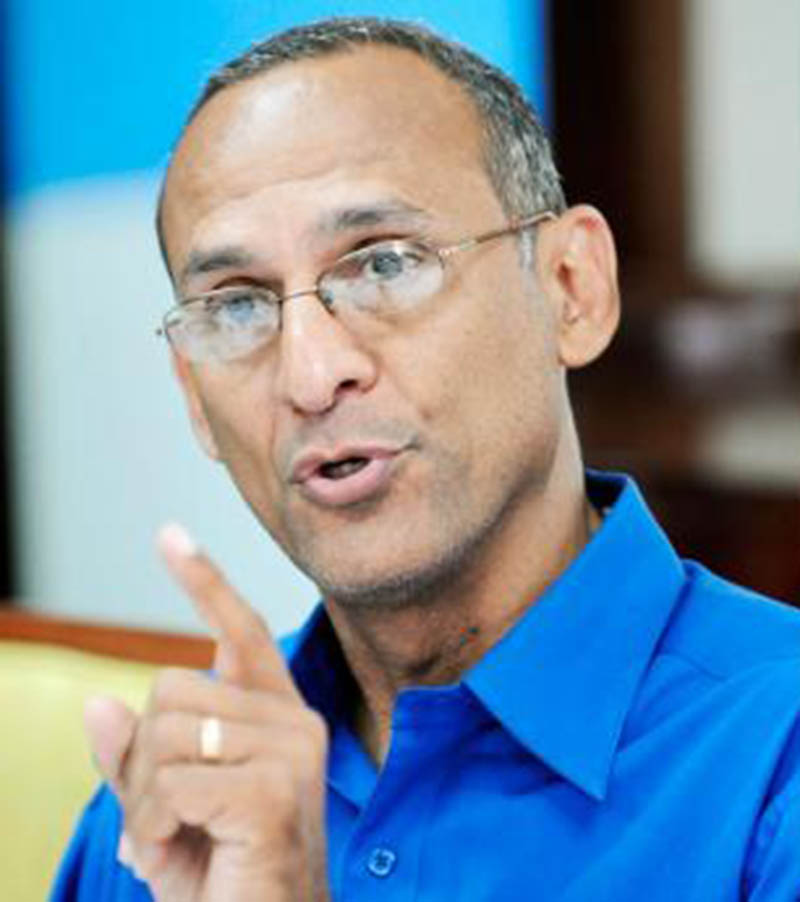Amid a bleak prognosis by a Jamaican economist about Guyana’s oil-based future, the government yesterday pushed back, citing a string of measures it has put in place since 2020 which it said will help the country avoid the resource curse.
Jamaican economist and University of the West Indies lecturer Dr Damien King has forecast doom for Guyana as he believes it would fall victim to the resource curse because it lacks strong institutions to prevent corruption.
“You mark my words, Guyana is going to go nowhere,” the Jamaica Observer quoted King as saying in an interview. According to the newspaper, he said the oil revenues could cause corruption to increase in the country and make it worse off than it was before accessing the wealth.
Noting that over US$1 billion had been collected to date by this country, King was reported as saying that he was still convinced that political parties would soon start to squabble over the spoils to the detriment of the country.
King said that Guyana has not yet developed strong systems to insulate it from corruption and until those were in place, the country was susceptible to remaining a third world country as history shows that few countries have been able to withstand the pressures.
In a release yesterday, the Ministry of Natural Resources said it wanted to dispel statements by King which it said “attempt to undermine the progress made towards the prudent management of the Guyanese economy and the shared development vision of the Government and its people”.
The ministry said that Guyana is labelled by leading market participants as the most successful frontier to early-stage production country in recent oil and gas history.
“Our nation’s exemplary environmental credentials and dynamic policymaking to facilitate expeditious offshore exploration and development activities underscore Guyana’s role-model status for Oil and Gas development strategy in the Energy Transition environment”, the statement said.
Since taking office in August 2020, the release said that the government has been working to transform the governance framework and management of the petroleum sector by developing and implementing various policies and programmes which allow for adherence to international best practices and principles.
It listed a number of steps it has taken since August 2020:
1.Updating the principles and conditions of all new petroleum production licences
2. Enacting a Local Content Law and establishing a Secretariat
3. Revising the Natural Resource Fund Law to provide greater oversight and management of revenue
4. New environmental permitting conditions and fees
5. Conducting Cost Recovery Audits
6. Continuous review and modernizing of the legislative framework for the oil and gas sector 7. Updating of the 1986 Petroleum and Exploration Act 8.
Development of Offshore Safety Regulations
9. Development of Hydrocarbon Environmental Management Regulations
10. Inter-agency collaboration to improve monitoring capabilities (Ministry of Natural Resources, the Guyana Geology and Mines Commission, the Guyana National Bureau of Standards and the Guyana Revenue Authority)
The Government said it swiftly remedied the deficiencies of the Natural Resource Fund Act 2019 with the Natural Resource Fund Act 2021 — an important step towards safeguarding against the resource curse, ensuring fiscal smoothing and advancing the quest of intergenerational wealth while utilising petroleum wealth to finance national development priorities. It said that he PPP/C administration scaled back the excessive power of the Minister of Finance — removing the possibility of ministerial direction in determining the ceiling on withdrawals, established a Board of Directors — vesting the Board with powers previously concentrated in the hands of the Minister and removed the possibility of any expenditure from the Fund being met without prior parliamentary approval.
Critics have however argued that the government’s version of the NRF was hurried through parliament without enough time for serious consideration. The government also effectively handpicked all of the persons who were appointed to the key NRF board. Furthermore, the formula for annual withdrawals from the NRF has been described as excessive and not setting aside sufficiently for inter-generational equity.
Another major omission by the government has been its failure to present legislation for the regulatory Petroleum Commission. Despite promises since August 2020, the government has failed to set up the regulatory commission despite the fact that the country has been producing oil for more than three years.
The government has also been accused of controlling the Environmental Protection Agency for the express purpose of ensuring that there are no impediments to ExxonMobil proceeding swiftly with oil extraction.
The government has also been accused of keeping from the public the findings of the first major audit of expense claims lodged by ExxonMobil – pre-contract costs, the audit of which was done by the British firm IHS Markit.
The government has also been criticised for seeking to control watchdog bodies via appointments.





